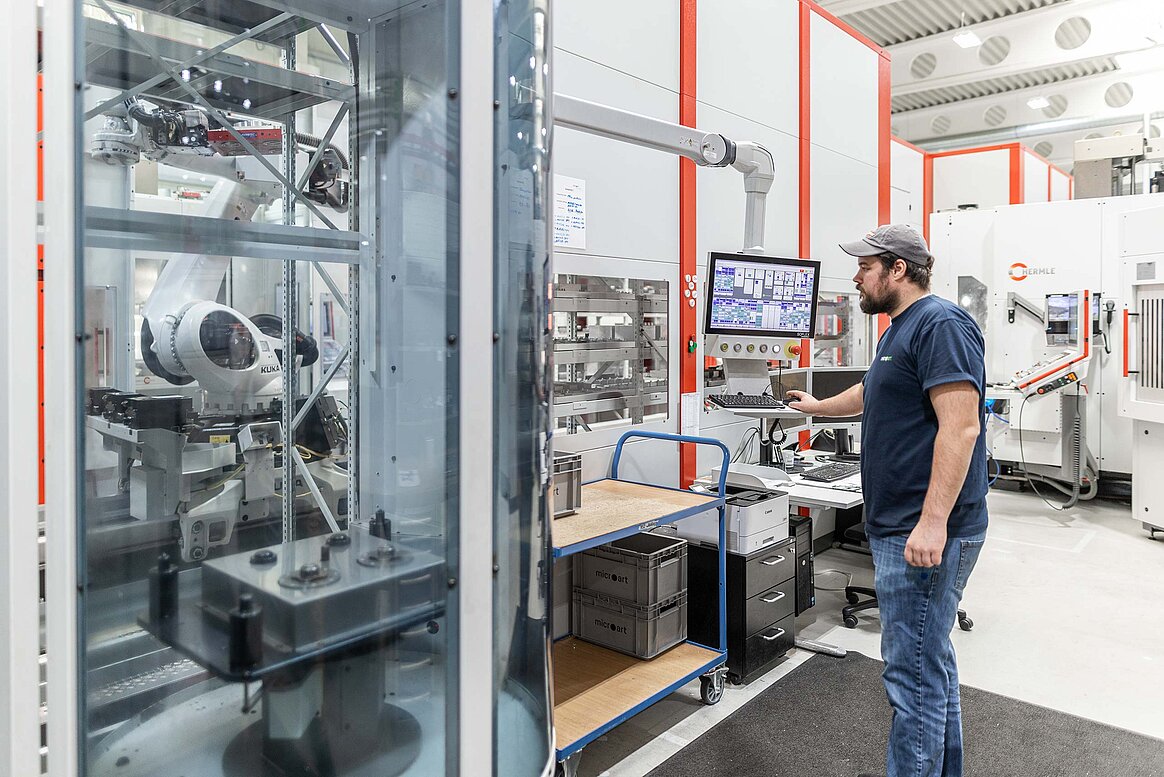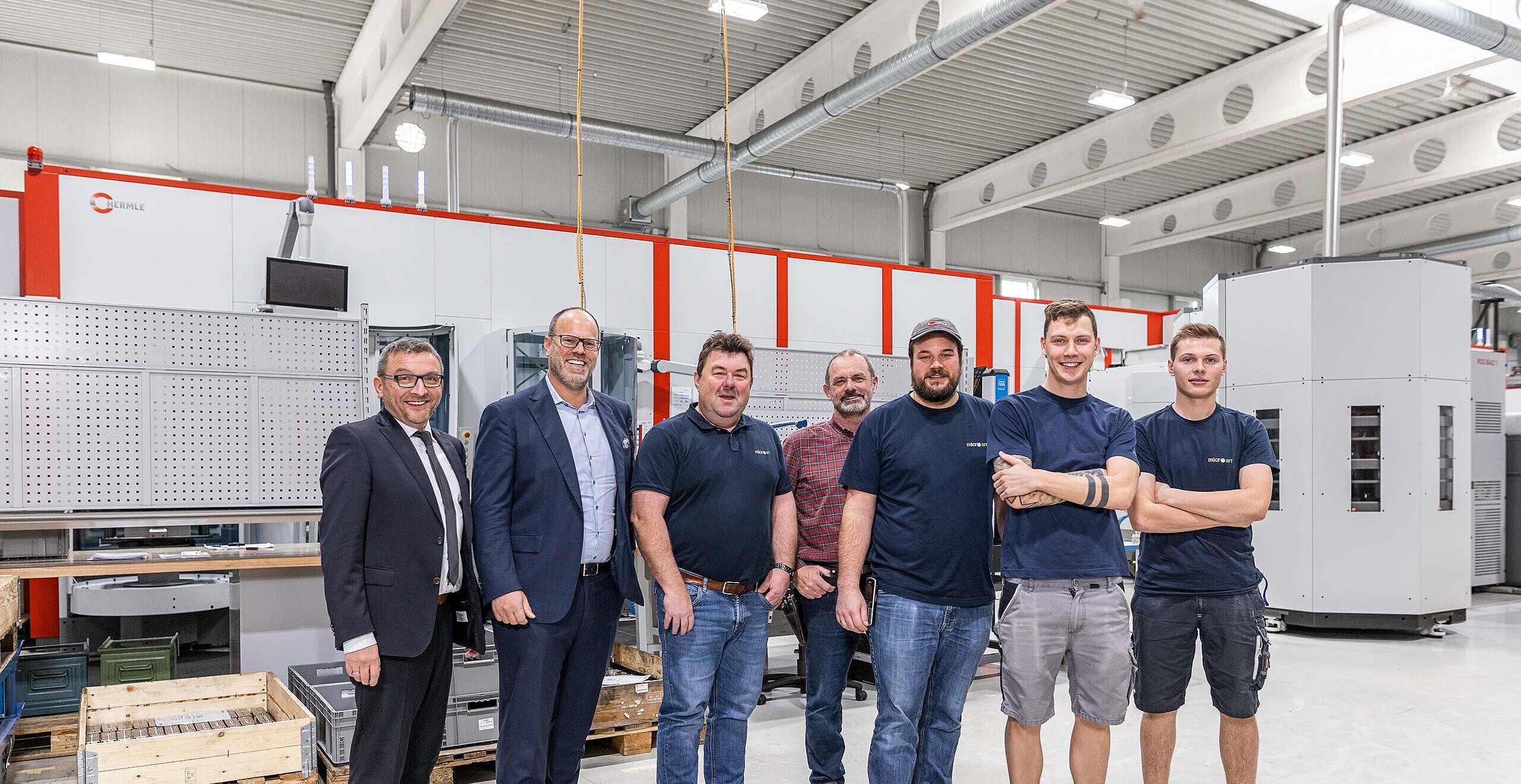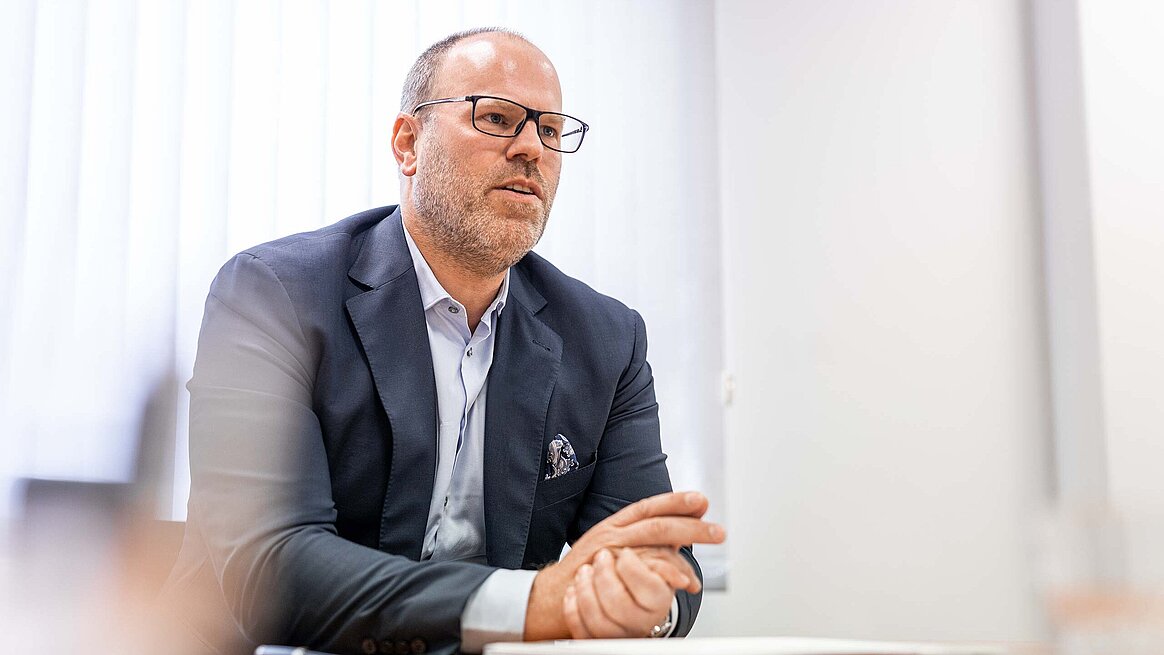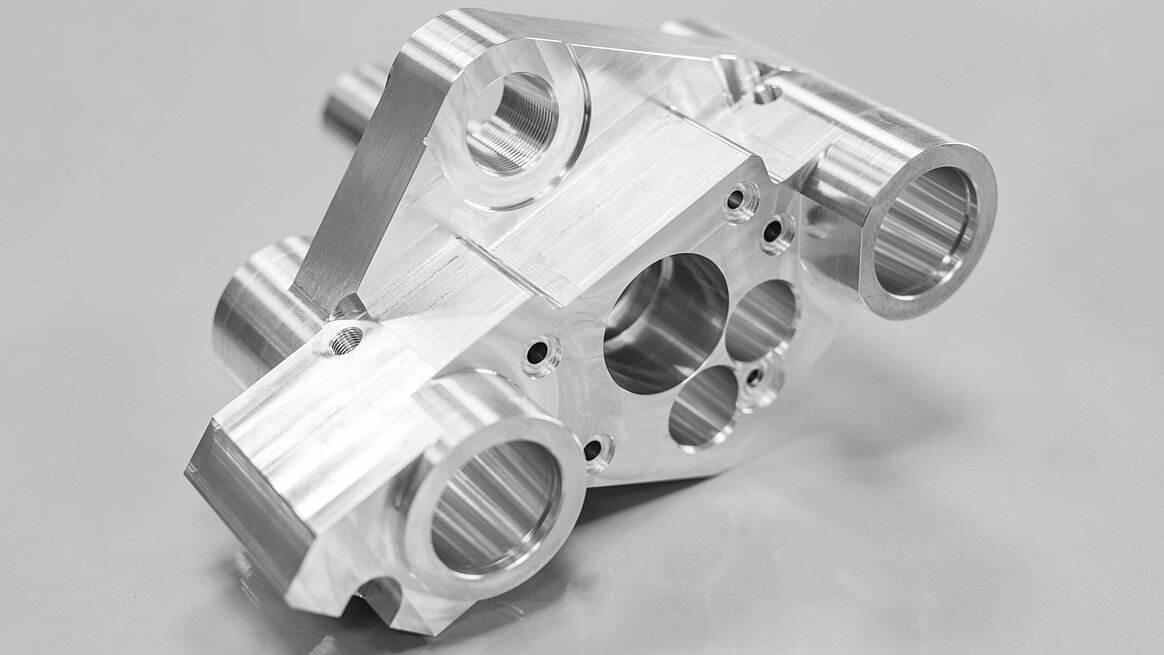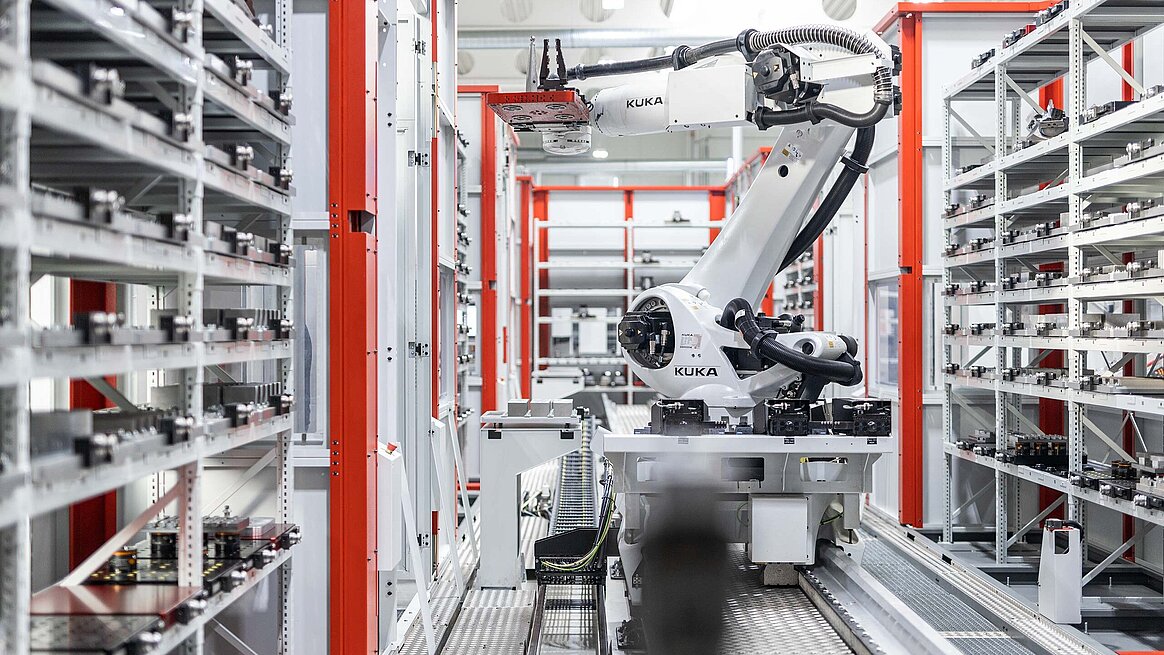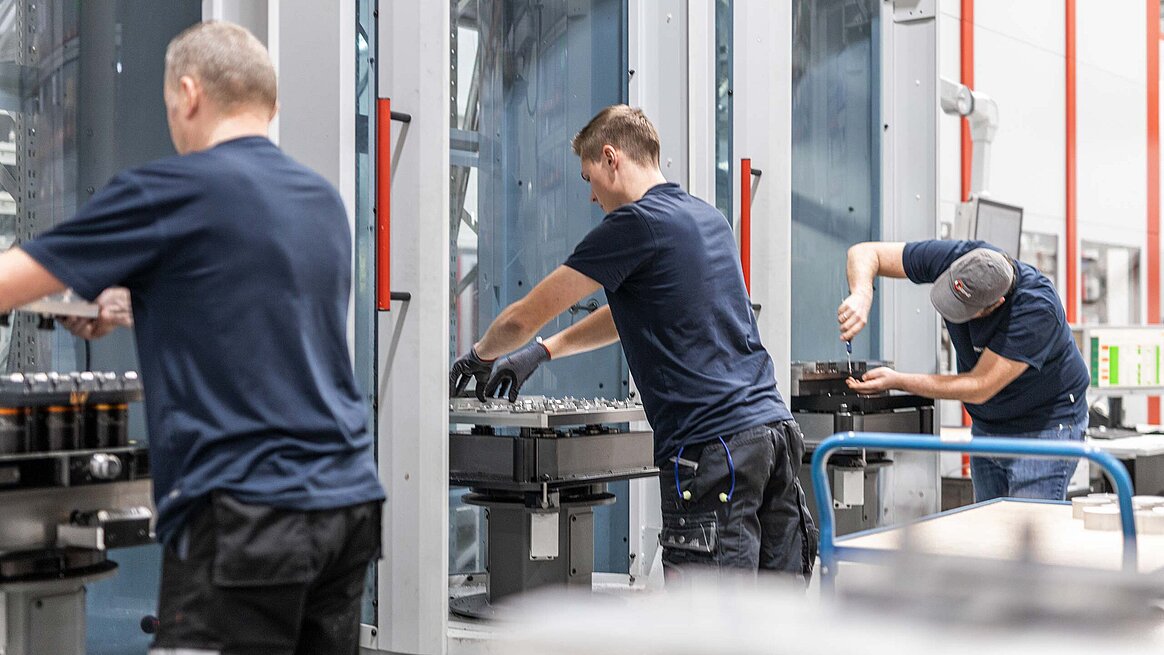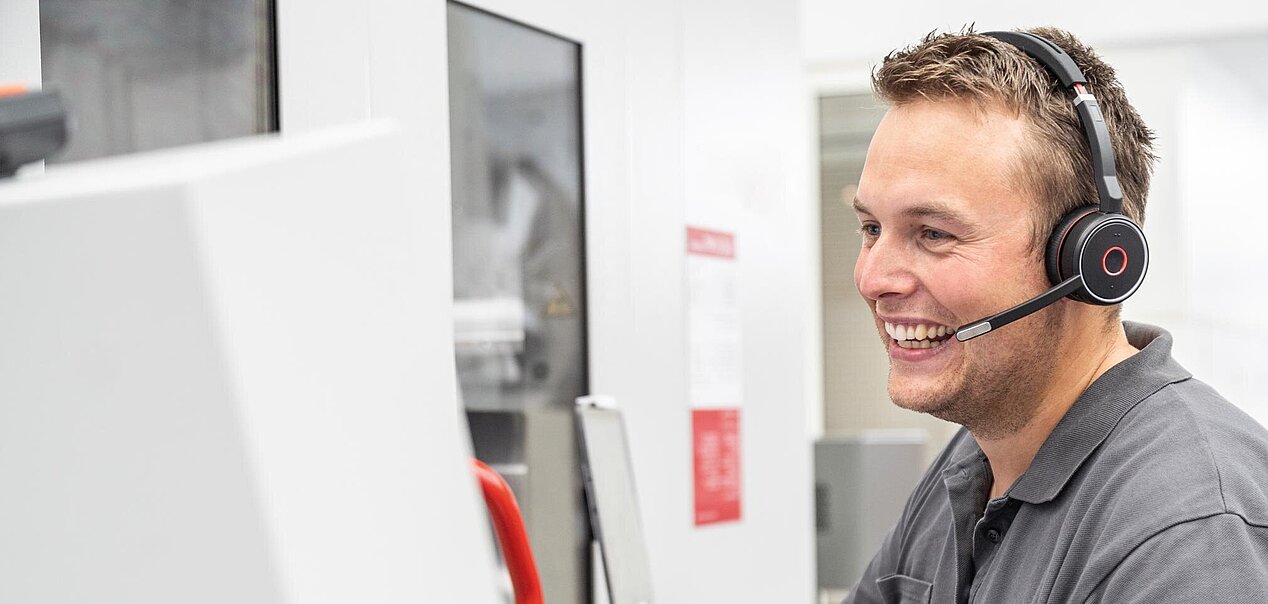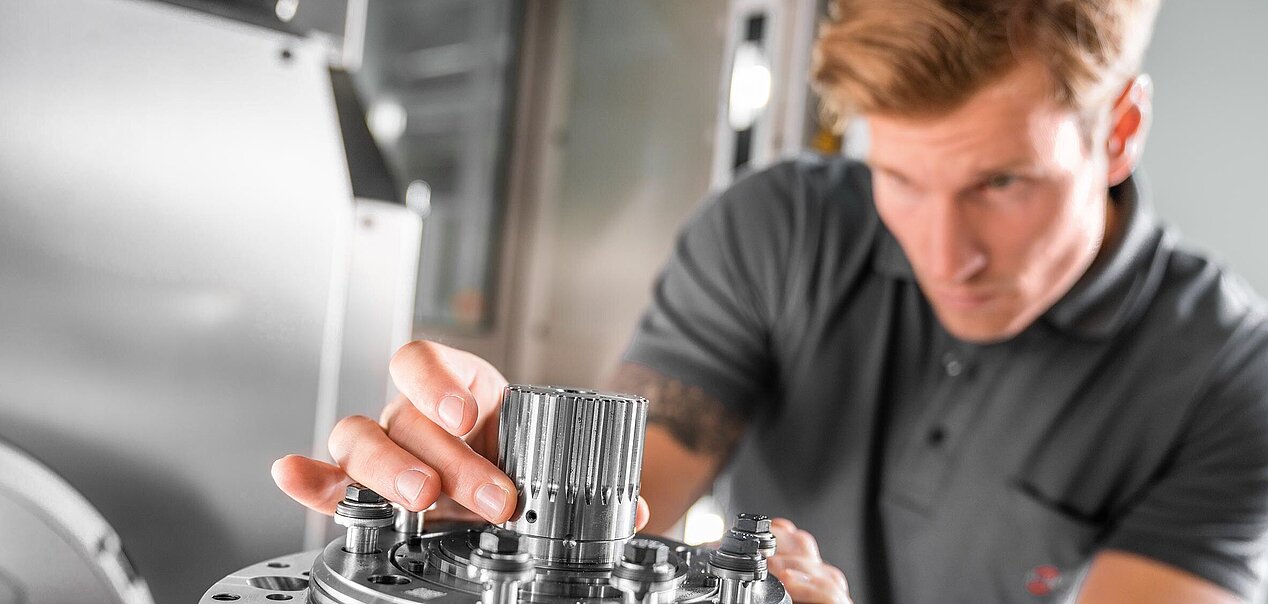C 32 | RS 2 L | Microart GmbH & Co. KG | Contract manufacturing
High variance and different batch sizes can cause many a contract manufacturer to panic – but not microart. The manufacturer of complex precision parts creates digital structures, which it combines with automated 5-axis machining centres from Hermle. The result: efficient milling with flexible capacity.
"The issue of trust is at the heart of our value system", explains Dr Alexander Artmann, adding that it runs like a common thread through the company’s philosophy and actions. The value system that the founder and managing partner of microart GmbH & Co. KG describes was developed by him and his team in 2007. "The markets were booming, and we were worried about frittering money away. So, we asked ourselves: what are we actually aligning ourselves with, what is guiding our corporate development?"
This was shortly after Artmann founded the company with the help of his father in the eastern Bavarian town of Roding. Engineer Michael Kerscher was also involved at this stage as the first employee and is now a driving force who helps manage and takes responsibility for the business. The original business strategy was to support tool-makers in the high-precision field. "We then moved relatively quickly into the area of machining for precision components and abandoned this original idea", reports Artmann. Since then, microart has developed into a company with a workforce of 180, which manufactures sophisticated components made of aluminium, stainless steel and special alloys as well as high-strength materials such as titanium, mostly in small batches of 50 to 2,000 pieces. All components are destined for the capital goods sector – primarily the engineering and plant construction as well as the electrical and process engineering areas.
The mission statement documents the result of the strategic considerations from that time. The "flexible", "focused" and "simple" values arranged around the core value of "trust" at the centre represent the guiding principles for corporate development at microart. Today, the mission statement is prominently displayed on the production floor and other locations. "Being flexible also means making decisions independently. This means that we need motivated and collaborative thinkers at every workstation who can work independently, are not afraid of making mistakes and are willing to learn. Our sense of curiosity allows us to use systems in the best possible way for us and to develop them further – also in detail", explains Artmann. These also include 25 milling centres supplied by Maschinenfabrik Berthold Hermle AG – the seven most recent of which are automated with two RS 2 L robot systems.
Right from the beginning
"Michael Kerscher and my father come from a toolmaking background and knew all about the reliability and performance of Hermle machining centres in terms of precision and excellent service", says Artmann. Particularly in the early days, service was a key factor: "We started with a C 40 U machine. After all, with Hermle, we knew even back then that we wouldn’t have to worry about long production outages". Another argument in favour of the company from Gosheim: "Our mission statements and perceptions of ourselves overlapped in many respects: Hermle was as good a fit for microart as microart was for Hermle. That’s why the partnership is focused on the long term".
The human aspect is right, as is the technical aspect. However, there is another important point: thanks to the Hermle systems, microart has a consistent stock of machinery that allows the company to standardise its processes – in keeping with the "simple" value in its mission statement. "Once we have learned things, we like to apply them a second and a third time", explains Artmann.
The supplier of precision parts moved away from stand-alone machines in 2016 and 2017 when it invested in three Hermle C 32 U machines that are connected by the RS 2 L robot system. Kerscher, Artmann and their team firmly believe that automation is the future. They are also aware of the strengths and weaknesses of their previously implemented automation solutions – such as the limitations of a 1:1 solution in the form of robots in front of 5-axis milling centres. "The loading process is autonomous but doesn’t give us the flexibility to machine different parts during the unmanned shifts", explains Artmann. In order to mill different components without human supervision and to add capacity to the business, microart opted for a robot that can supply multiple machines and is linked via an "intelligent" master computer. It travels along a linear axis that allows it to access the machining centres as well as the parts and pallet shelves autonomously.
Scaling up a proven approach
"The automation solution from Hermle demonstrated its efficiency and convinced us", is how Artmann and Kerscher justify their investment in yet another Hermle system in mid-2019. An extension to the company building that same year doubled the production floor to 10,000 square metres, making it large enough to accommodate a second RS 2 L system – this time using C 32 U machines. "We standardise by scaling existing solutions, using the learning curve and applying this know-how to multiple machines", explains Artmann. This means more magazine pockets for the new system. These allow microart to machine recurring production runs automatically without major expenditure.
The automated machining centres not only increase capacity but also offer greater flexibility thanks to their parallel set-up. "This makes it easier for us to realise special campaigns for our customers", explains Kerscher. If a more urgent job comes in, microart can stop the job, squeeze in a production run and then restart the previous job later on without fear of high set-up costs or long set-up times. Which machine is used for this purpose is a secondary consideration because the program, tool and clamping situation are identical on every Hermle machining centre. "Thanks to buffering, intermediate storage and standardisation, we can react quickly in providing machining services and still keep the machines running around the clock", adds Kerscher.
